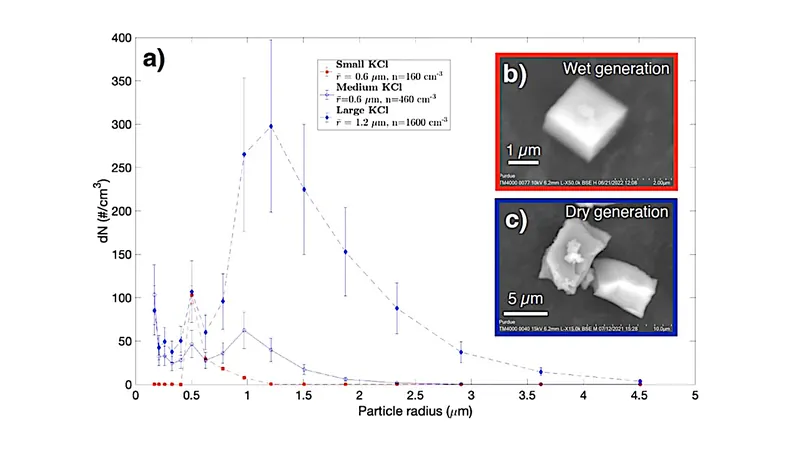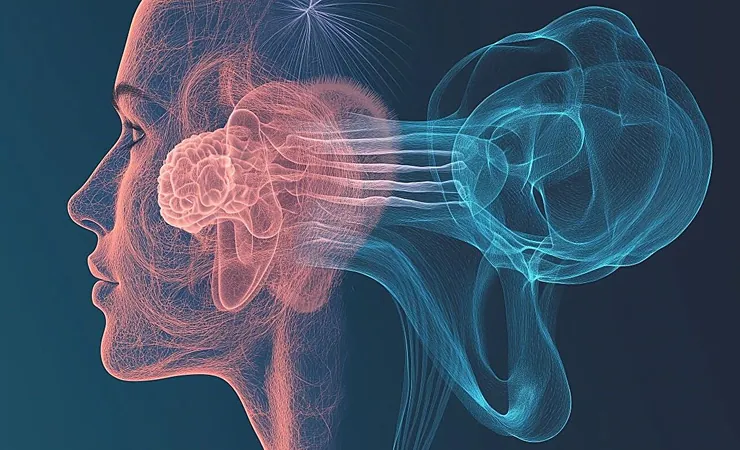
The Hidden Heart Health Risks of Menopause: What Every Woman Should Know!
2024-11-03
Author: Yu
Menopause is a pivotal phase in a woman’s life, marked by the end of menstrual cycles and a cascade of physiological changes. Typically occurring around the age of 52, this transition can bring about a range of symptoms, including hot flashes, mood swings, and sleep disturbances. However, the implications of menopause extend far beyond discomfort; it significantly affects cardiovascular health, a fact that many women may not be fully aware of.
Recent revelations from the American Heart Association (AHA) underscore that heart disease is a leading cause of death among women, surpassing all forms of cancer combined. Alarmingly, the risk factors for cardiovascular diseases rise sharply during the years surrounding menopause.
Menopause is commonly divided into three stages:
1. Perimenopause – This phase can start several years before the last menstrual period and concludes 12 months after.
2. Menopause – Defined as the point 12 months after the last period.
3. Postmenopause – The years following menopause where women are at heightened risk for various health issues.
While some may glide smoothly through these stages, many women confront debilitating symptoms linked to significant hormonal changes, particularly the decline in estrogen levels.
Dr. Deborah Matthew, a leading authority on women's health, emphasizes that estrogen plays a crucial role in protecting heart health. Prior to menopause, women have a lower incidence of heart disease compared to men. However, as estrogen levels plummet post-menopause, women’s risk of heart disease increases, often surpassing that of their male counterparts of the same age.
Estrogen contributes to cardiovascular protection in several ways, according to Dr. Robin Noble, a board-certified OB/GYN. It enhances blood vessel elasticity and possesses anti-inflammatory properties, reducing the chances of plaque buildup in arteries. However, as estrogen diminishes, the protective shield it offers dissipates, causing detrimental changes like increased cholesterol levels, higher blood pressure, and the accumulation of visceral fat—all known risk factors for heart disease.
The AHA has noted that common symptoms associated with menopause, such as hot flashes, mood disorders, and abdominal weight gain, are linked to an elevated risk of cardiovascular complications. A recent study even associated post-menopausal stress and insomnia with a higher likelihood of developing atrial fibrillation (AFib), an irregular heart rhythm that can lead to severe consequences.
Furthermore, women who experience early menopause (before age 40) are at an even greater risk for cardiovascular disease.
As menopause progresses, several cardiovascular risks become pronounced, including:
- Coronary Artery Disease: The deficiency of estrogen accelerates atherosclerosis, leading to heart attacks.
- Hypertension: Estrogen is vital for maintaining blood vessel flexibility; its loss results in increased blood pressure.
- Arrhythmias: Hormonal shifts can disrupt heart rhythms, causing palpitations or AFib.
- Stroke: Elevated blood pressure and arterial rigidity during menopause significantly heighten stroke risk.
- Heart Failure: With age and hormonal changes, the heart's efficiency may decline, often exacerbated by untreated high blood pressure or pre-existing conditions.
- Increased Cholesterol Levels: A lack of estrogen correlates with higher LDL ("bad") cholesterol and challenges in managing insulin levels, elevating the risk for diabetes and, subsequently, heart-related issues.
Importantly, pre-existing heart conditions can complicate menopause symptoms. Women with existing cardiovascular diseases may experience intensified menopausal symptoms, amplifying risks and complicating management.
So, what can women do to safeguard their heart health during this transition? Experts recommend adopting a healthy lifestyle that includes regular exercise, stress management, and a balanced diet rich in plant-based foods and whole grains. The Mediterranean diet, emphasizing fish and reducing processed foods, is highlighted as a particularly heart-healthy option.
Additionally, hormone-replacement therapy (HRT) may be beneficial for women looking to mitigate heart disease risk. Recent studies suggest that estrogen therapy might not only alleviate menopausal symptoms but also improve various cardiovascular health markers if started soon after menopause.
Key takeaways from this research point to the importance of personalized discussions between women and their healthcare providers regarding hormone therapy and overall cardiovascular health, particularly within the first decade post-menopause.
In conclusion, while menopause is a natural stage of life, its impact on heart health cannot be ignored. Awareness and proactive management can help women navigate this transition with confidence, minimizing heart disease risks and enhancing overall well-being. Don’t underestimate the changes—empower yourself with knowledge and make informed health choices!



 Brasil (PT)
Brasil (PT)
 Canada (EN)
Canada (EN)
 Chile (ES)
Chile (ES)
 España (ES)
España (ES)
 France (FR)
France (FR)
 Hong Kong (EN)
Hong Kong (EN)
 Italia (IT)
Italia (IT)
 日本 (JA)
日本 (JA)
 Magyarország (HU)
Magyarország (HU)
 Norge (NO)
Norge (NO)
 Polska (PL)
Polska (PL)
 Schweiz (DE)
Schweiz (DE)
 Singapore (EN)
Singapore (EN)
 Sverige (SV)
Sverige (SV)
 Suomi (FI)
Suomi (FI)
 Türkiye (TR)
Türkiye (TR)